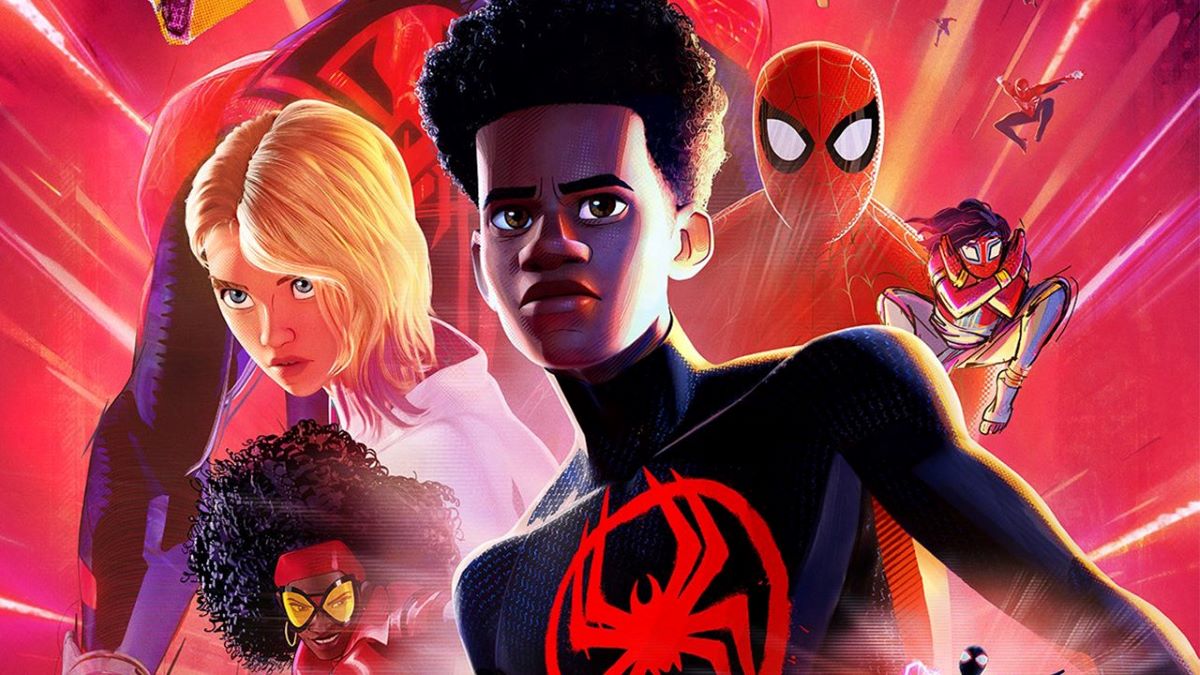Towards Infinity and Beyond: Lord & Miller’s Multiverse Takes No Prisoners. An immersive and alienating experience that lays the foundation for new animation
Feast your eyes and toast to the magnificent and progressive fortunes of global animation, which has long ceased to rely on Pixar—John Lasseter returns, all is forgiven…—and certainly cannot bask, box office aside, in Super Mario Bros. – The Movie. The second chapter of the Miles Morales Spider-Verse trilogy confirms and even amplifies the excellent impressions made by the first, capable of an Oscar, $384 million worldwide, and more importantly, of redefining the visual and imaginative perimeter in 2018.
Spider-Man: Into the Spider-Verse was directed by Bob Persichetti, Peter Ramsey, and Rodney Rothman from a story by Phil Lord, this second Across the Spider-Verse is directed by Joaquim Dos Santos, Kemp Powers, and Justin K. Thompson, with a screenplay by the talented duo Phil Lord and Christopher Miller, plus David Callaham.
After finding Gwen Stacy (Hailee Steinfeld, voice), the fifteen-year-old half Puerto Rican and half black Miles Morales (Shameik Moore, voice) – a character introduced by Brian Michael Bendis and Sara Pichelli in 2011 – “leaves” Brooklyn and his overly caring parents for the Multiverse, where he is, uh, introduced to a team of Spider-Heroes set up to safeguard the Spider ecosystem. Meanwhile, led by the jumping and flying Virgil, we move from Gwen Stacy’s 90s Chelsea home to the already known residence of Miles in the first film, from the fusion of Manhattan and Mumbai of the futuristic Mumbattan, which indeed echoes Fritz Lang’s Metropolis, to the even more futuristic Nueva York and the 70s London triggered by Spider-Punk, rediscovering the Sex Pistols and graphical obsolescence through Xerox.
So much stuff, for a film that is ironic and bitter, highly cultured, aesthetically minded to the core, and futuristic by design: aimed at delivering a radical, complex visual and auditory experience, demanding a lot and even more satisfying, capable of advancing global animation further.
The story, after all, doesn’t count or, rather, counts up to a point: Lord, Miller, and company – really – beautiful manage to synthesize Blade Runner and Star Trek, Ready Player One and Tron, Akira and Berlin – Die Sinfonie der Großstadt, Belle and Heat, quantum theory and Andy Warhol, Ghost in the Shell and, uh, Donald Glover, achieving a meta-cinema that by reflecting and paying homage transports us to an alternative, hypertextual, and pop place in the sense of art, futuristic for the Chinese and glitchy for nemesis, that celebrates the heroism of Miles, Gwen, and the other Spiders by framing them for what they are, border crossers, thus guardians of the Multiverse.
The experience is challenging, at times exhausting due to the accumulation of visual information, and the stimuli from Daniel Pemberton’s soundtrack are no less: immersive, unless one is Cousteau, is an undue attribute, but Across the Spider-Verse (the third will be called Beyond the Spider-Verse) claims it for itself, powered by a phantasmagoria that looks to hip-hop and adolescence, to imaginative urbanism and lyrical love—Miles and Gwen head down, or rather New York upside down.
Astonishing, alienating, even disturbing: starting from our first hero’s journey, which a stream of consciousness will ferry from uniqueness to, if lucky, primus inter pares. The power of the Multiverse, which amplifies the collectivization of comics, the multiplication of identities, and indeed, our horror vacui.
We do not know how much and in what way this marvelous Across the Spider-Verse will speak to the youngsters, it’s strange that it seems to require a surplus of attention, equally encyclopedia and agenda, and also an empathy, a superior existential awareness compared to the latest live-action of the Spider, No Way Home.
Rush to the theater: it’s damn well worth it.
Cinematografo, June 1, 2023





